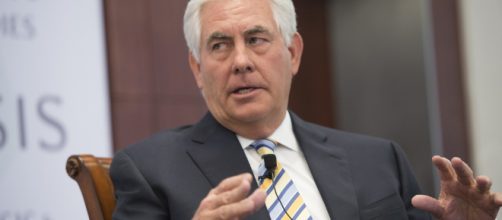U.S. Secretary of State Rex Tillerson has recently been doing his best to ease the increasing provocative tension with North Korea. It is speculated that war is imminent on the Korean peninsula but Tillerson is hoping it is not too late to settle things peacefully. North Korea has not intimated which way they were leaning to the proposal.
Tillerson still stands by the U.S. demand that North Korea end its nuclear weapon program and give up their arsenal. North Korea does not seem interested in talking until they can effectively hit the U.S. mainland with accuracy.
This may complicate things. While appearing sincere, it is hard to fathom that what Tillerson is proposing will have any chance of realistically taking place.
Will North Korea even want to talk?
Kim Jong-un has long maintained that the desired goal of the nuclear program was to hit the United States. At the very least, it is seen as a deterrent from a U.S. and South Korean invasion. One can't blame this way of thinking after what happened during the Korean War in the 1950's, a war that only ended in an armistice.
The prospects of another invasion terrifies the North Koreans. The ensuing famine and hardship that the citizens have endured since the Korean War is solely blamed on the U.S. It is in their DNA to hate America for what they perceive as destroying their country.
Having nuclear weapons is their only guarantee that history will not repeat itself.
Bringing Kim Jong-un to the table will require great concessions. He can in no way give up his nukes and still save face among his countrymen. The reward for doing so would need to be far greater than the lifting of any sanction. It could potentially be worse than allowing him to keep his weapons.
Can war be averted?
Not since the Cuban Missile Crisis has the United States come so close to nuclear war with another nation. There is no guarantee that war would result in the use of these weapons, but there are many scenarios where their use would be expected. Mainly, if North Korea was collapsing like the Germans towards the end of World War Two, Kim Jong-un would be highly likely to launch as many nukes as he could before being taken out.
The first step in deescalation is for North Korea to stop with the aggressive rhetoric and provocative testing. They have slowed their testing in recent months, but the back and forth between Pyongyang and Washington has done little to calm things. Restraint will be needed on both sides to get to the table and talk. However, with the lines that have been drawn in the sand, a compromise still seems out of reach.


